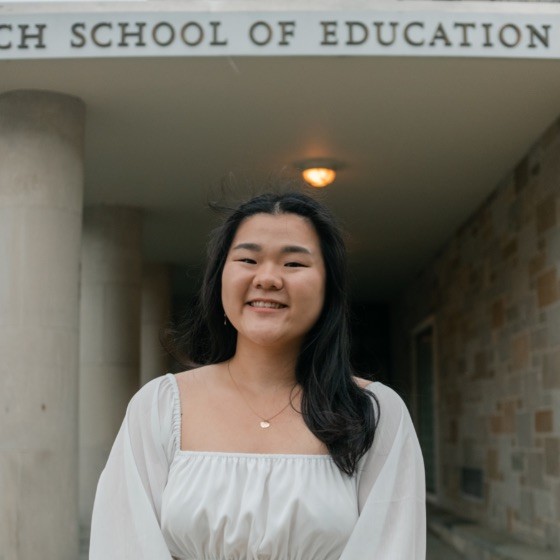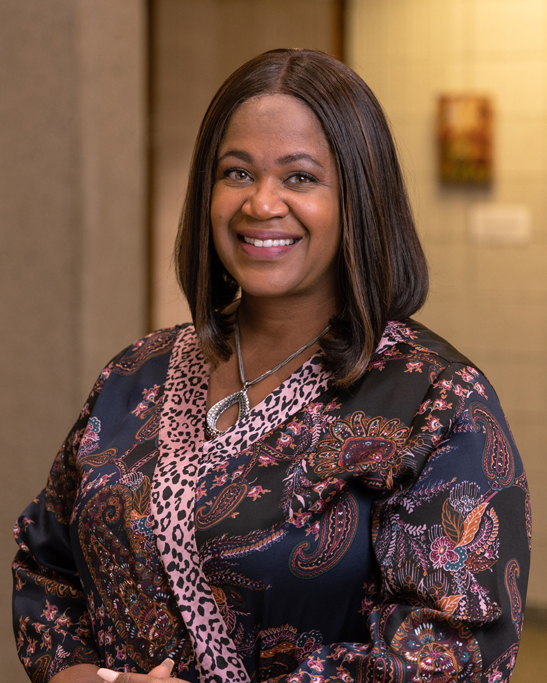Nearly one in five Americans have a diagnosable mental health condition every year. Amid this intensifying crisis, mental health counselors are more crucial than ever, working to improve well-being by providing a safe space for their clients to explore thoughts and feelings, develop coping skills, and increase overall quality of life.
To help meet this growing need, the Lynch School’s M.A. in Mental Health Counseling (MHC) program has introduced specialized tracks. The Integrated Behavioral Health (IBH) track addresses mental health concerns alongside physical health conditions for a “whole person” approach to wellness, training students to deliver behavioral health assessments and interventions in an integrated medical setting. Meanwhile, the Urban Scholars track trains counselors to address the complex and nuanced mental health needs of people living in urban communities. Adults living in cities have a 32% higher chance of experiencing mental health disorders compared to their peers, making qualified professionals even more essential in these locations.
Through these specialized programs in integrated behavior and urban mental health, the Lynch School is preparing counselors to meet these challenges head-on. Two students from these tracks—Yerina Kim and Harrington Pierre-Jean—are already putting this mission into action.

Yerina Kim ’25, Integrated Behavioral Health (IBH) Track
Yerina Kim chose the IBH pathway because she was interested in providing therapeutic support in integrated settings to build trust in the healthcare system. As an international student from South Korea, Kim says the perception around mental health in her country inspired her to try and reframe the narrative to remove barriers in the profession.
“A lot of patients have distrust in the healthcare system itself, so having different providers that can really meet their needs—beyond just physical needs—can be very helpful for [patients] to just be in the loop.”
Kim quickly noticed that there are few Asian counselors in the field, perhaps because of the stigma around mental health care in some Asian cultures. She hopes to bring her international perspective and a “multicultural view” to counseling, in an effort to break that stigma. “I strive to build meaningful connections with all my clients, fostering a sense of safety, especially for those who have been affected by stigma and distrust in healthcare,” she shares.
Kim credits her professors—especially Oh Myo Kim, a Korean-American associate professor of the practice—for being formative to her development as a counselor during her graduate school experience at the Lynch School.
“Dr. Oh Myo Kim is super empathic. She modeled great traits of what I want to be as a counselor, especially as a Korean-American.”
What’s Next for Yerina Kim?
After graduation, Kim will begin a fellowship at Atrius Health, a local outpatient hospital, where sh
e’ll work as she completes Massachusetts licensure requirements. Ultimately, she hopes to take her experience and education in mental health counseling back home to Korea.

Harrington Pierre Jean ’25, Urban Scholars Program
Prior to starting a master’s program, Pierre Jean worked as a fifth-grade math teacher. He noticed that “as much as educators want children to be successful, a lot of that success comes from external factors,” like the student’s home environment, family dynamics, or their mental health. Curious to explore these factors and passionate about serving others, he applied to Boston College’s Mental Health Counseling program.
While Pierre Jean was excited about the opportunity to “learn a little bit of everything” through his coursework, he eventually decided to pursue the Urban Scholars track because of his commitment to removing barriers to mental health resources for all.
The Urban Scholars track builds on the foundation of the M.A. program while preparing students to work with clients and partners in urban settings, including mental health centers, public hospitals, and community-based clinics. His time in the program reaffirmed his belief that representation matters, especially within urban populations.“Coming from a minority background, I knew that when I became a clinician, I wanted to serve those populations. The urban scholars program does a great job of really making sure that the work we do also aligns with the population we want to serve.”
Pierre Jean credits the Lynch School community’s strong support system as being instrumental in his academic journey. He receives support not only from his peers, with whom he shares classes, but also from his professors.

MHC Program Director and Associate Professor of the Practice Treniece Lewis Harris
Program Director and Associate Professor of the Practice Treniece Lewis Harris played a pivotal role in guiding and mentoring Pierre Jean. “She’s a mentor, but I would also consider her a colleague and a friend,” he explains. After graduation, he knows that he’ll maintain the relationship he’s built with Lewis Harris, and several other faculty members who were formative in his development at Boston College.
Within the Urban Scholars cohorts, Pierre Jean and other second-year master's students take on the role of mentor to first-year students. As leaders, they share valuable insights on navigating classes, internships, and placements. Mentorship, especially in the field of psychology, is imperative for fostering growth and preparing the next generation of leaders in the field.
What’s Next for Harrington Pierre Jean?
Pierre Jean, who is set to graduate in May, has accepted a job as a clinician of the emergency residence program at Communities for People and will also continue developing an SEL curriculum at the Epiphany School. In preparation for licensure in DC, he will also be a part-time clinician providing telehealth services for Minds In Motion, an all black counseling company. He is unfailingly dedicated to serving urban communities throughout his life, and may one day pursue a Ph.D. to further support that goal.
Both Kim and Pierre Jean have shown unwavering dedication to their respective tracks within the MHC program, illustrating their commitment to making a positive impact in the lives of others. With the support of their cohorts, dedicated faculty, and the Lynch School community, Pierre Jean emphasizes that “BC excels at fostering teamwork and creating an environment where learning from everyone is encouraged.”
Their experiences serve as a testament to the transformative influence of counseling in diverse contexts, underscoring the significance of empathy and dedication in the field of mental health counseling.


